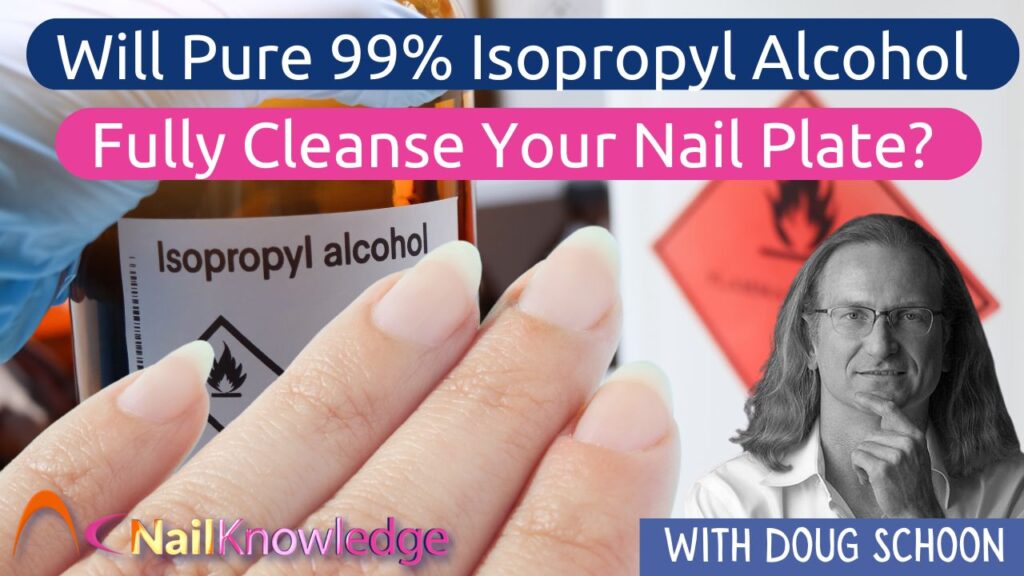We are asked this question a lot, and you are right to call them surface oils. The nail plate contains a lot of oil, but our focus is on removing the surface oils because they can block adhesion. Understanding the complexity of nail oils and the effectiveness of different solvents in removing these oils is crucial for achieving optimal results in nail care.
Let’s explore why using a professionally designed nail cleaner is more effective than relying on pure isopropyl alcohol alone.
La complejidad de los aceites para las uñas
En placa para clavos contains a lot of oil, but we only want to remove surface oils because they can block adhesion. We are making a simplification when we say the nail plate contains “oil”. Aceite de uñas contiene muchas sustancias oleosas diferentes, y algunas son mucho más difíciles de eliminar de la lámina ungueal que otras. Los aceites naturales de la lámina ungueal son una mezcla compleja de más de una docena de ceras y sustancias aceitosas diferentes. La mayoría de estas sustancias son secretadas por el tejido que rodea la placa ungueal, pero algunas se transfieren del pelo a las uñas cuando entran en contacto. No todas las sustancias aceitosas que se encuentran en la lámina ungueal pueden eliminarse cuando ésta se limpia con acetona o alcohol o acetato de etilo, los disolventes más utilizados.
Eficacia de los disolventes en la limpieza de uñas
That’s because not all types of nail plate oily substances are soluble in every solvent. Some are more soluble in acetone, while others are more soluble in isopropyl alcohol. In other words, different solvents selectively remove various contaminants from the surface of the nail plate. Some solvents can leave behind contaminants that may fill up and/or block the various tiny spaces where the nail coating would normally seep into, harden and anchor itself more firmly to the surface of the nail plate. This helps explain why cleansing the nail plate is so important to good adhesion. A scientifically designed nail surface cleanser will contain a synergistic blend of solvents and other beneficial additive ingredients that are more likely to do a superior job when compared to using isopropyl alcohol alone. That’s why I recommend using professionally designed nail cleaners and avoiding less effective substitutes.


